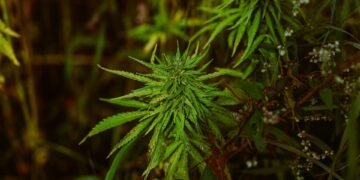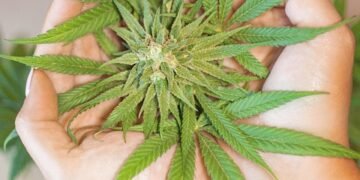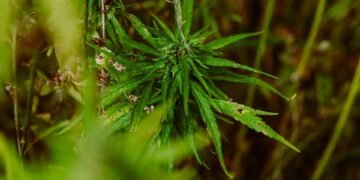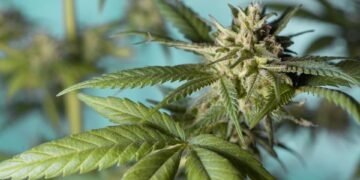The Green Revolution: Navigating the Legal Landscape of Hemp Farming
With the increasing popularity of hemp products and the legalization of industrial hemp cultivation in many states, the hemp industry is experiencing a significant boom. However, navigating the legal landscape of hemp farming can be challenging for both new and experienced farmers. In this article, we will explore the key legal considerations that hemp farmers need to keep in mind to ensure compliance with federal and state regulations.
Understanding the Legalization of Hemp Farming
In 2018, the Agricultural Improvement Act, also known as the Farm Bill, was signed into law, legalizing the cultivation of industrial hemp in the United States. This legislation removed hemp from the list of controlled substances and classified it as an agricultural commodity. Under the Farm Bill, hemp is defined as cannabis plants that contain no more than 0.3% THC, the psychoactive compound found in marijuana.
While the federal government has legalized hemp cultivation, individual states have the authority to regulate the production of hemp within their borders. This has led to a patchwork of regulations across the country, with some states implementing strict licensing requirements and testing protocols.
Obtaining a Hemp Cultivation License
One of the first steps that hemp farmers need to take is to obtain a hemp cultivation license from their state’s department of agriculture. The application process varies from state to state, but typically involves submitting an application, paying a fee, and providing documentation such as a criminal background check and a farm plan.
It is important to note that not all states have legalized hemp cultivation, so farmers should check the laws in their state before applying for a license. Additionally, some states have placed restrictions on the types of hemp that can be grown, so farmers should familiarize themselves with these regulations before planting their crops.
Compliance with Testing and Labeling Requirements
One of the key requirements for hemp farmers is to ensure that their crops are tested for THC levels to ensure compliance with federal regulations. The Farm Bill mandates that hemp crops must contain no more than 0.3% THC, and farmers whose crops exceed this limit may be subject to enforcement actions.
In addition to testing requirements, hemp farmers must also adhere to labeling regulations. Products containing hemp must be labeled accurately and cannot make false claims about their contents or potential health benefits. Failure to comply with labeling requirements can result in fines and other penalties.
Environmental Considerations
As with any agricultural activity, hemp farming can have environmental impacts that need to be taken into account. Hemp requires water, nutrients, and pesticides to thrive, and farmers must ensure that they are using sustainable practices to minimize their environmental footprint.
Additionally, hemp cultivation can have soil health benefits, as hemp plants have deep roots that can help prevent soil erosion and improve soil structure. Farmers should consider implementing regenerative agriculture practices to enrich their soil and promote long-term sustainability.
Understanding Federal and State Regulations
It is crucial for hemp farmers to stay informed about the latest federal and state regulations governing hemp cultivation. The legal landscape is constantly evolving, with new laws and regulations being passed that can impact the industry. Farmers should regularly consult with legal experts and industry organizations to ensure that they are in compliance with all applicable laws.
Some common questions that hemp farmers may have include:
Can I grow hemp on my property without a license?
No, farmers must obtain a hemp cultivation license from their state’s department of agriculture before growing hemp. Failure to do so can result in legal consequences.
What are the restrictions on hemp cultivation in my state?
Each state has its own regulations governing hemp cultivation, including licensing requirements, testing protocols, and zoning restrictions. Farmers should familiarize themselves with the laws in their state before planting their crops.
What are the penalties for non-compliance with hemp regulations?
Penalties for non-compliance with hemp regulations can vary depending on the severity of the violation. Farmers may face fines, crop confiscation, or even criminal charges for serious infractions.
Conclusion
As the hemp industry continues to grow, it is essential for farmers to understand and comply with the legal requirements governing hemp cultivation. By obtaining the necessary licenses, adhering to testing and labeling requirements, and staying informed about federal and state regulations, farmers can ensure that their operations are compliant and sustainable in the long term.
Overall, navigating the legal landscape of hemp farming requires diligence, attention to detail, and a commitment to compliance. By following the guidelines outlined in this article and seeking guidance from legal experts, hemp farmers can position themselves for success in this burgeoning industry.
References
1. Agricultural Improvement Act of 2018. https://www.congress.gov/bill/115th-congress/house-bill/2/text
2. National Conference of State Legislatures. Hemp Cultivation and Production Laws. https://www.ncsl.org/research/agriculture-and-rural-development/state-industrial-hemp-statutes.aspx




















![The Mind-Blowing Effects of [Cannabis Strain]](https://cannabisdailyguide.com/wp-content/uploads/2025/10/tree-4138799_960_720-360x180.jpg)


















































